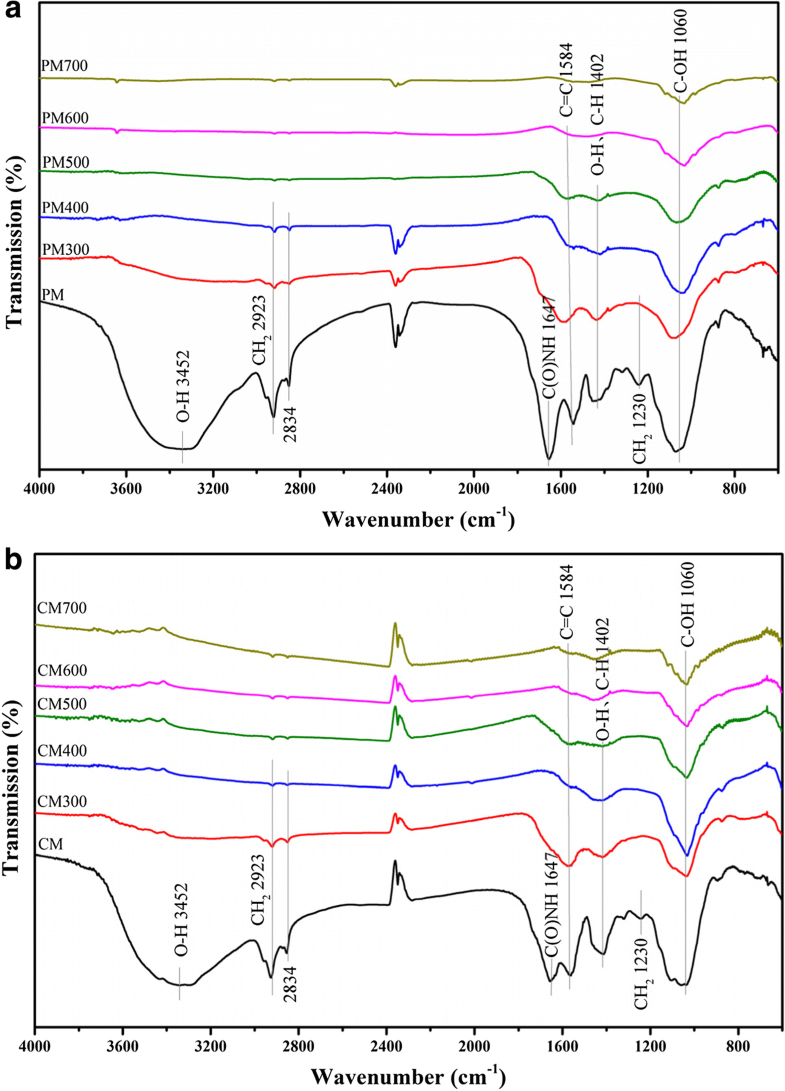

Purpose
Pyrolysis is the most effective method to completely remove antibiotics and immobilize heavy metals from livestock feces. However, the effect of the pyrolysis temperature on antibiotic removal at laboratory and pilot scales is still unclear.
Materials and methods
The pyrolysis technique was used to convert pig manure (PM) and chicken manure (CM) into biochar at different temperatures from 300 to 700 °C in a laboratory-scale test. The performance of antibiotic removal and heavy metal immobilization in livestock feces was studied, and the optimal temperature of 600 °C was selected for the pilot-scale verification.
Results and discussion
The results showed that the removal of the antibiotics tylosin (TYL), tetracycline (TC), chlortetracycline (CTC), doxycycline (DOXY), sulfamethazine (SMZ), sulfadiazine (SDZ), and sulfamethoxazole (SMX) was satisfactory, and all seven typical antibiotics were completely removed at 600 °C. In addition, the heavy metals zinc (Zn), copper (Cu), chromium (Cr), lead (Pb), nickel (Ni), cadmium (Cd), and arsenic (As) in the manure were well immobilized, and higher temperatures (above 600 °C) favored their immobilization. The results of heavy metal immobilization and antibiotic removal of the pilot-scale test were similar to those of the laboratory-scale test.
Conclusions
Laboratory- and pilot-scale experiments showed that the current study provided a safe method and technology for treating and recycling livestock feces into biochar via the pyrolysis process.
